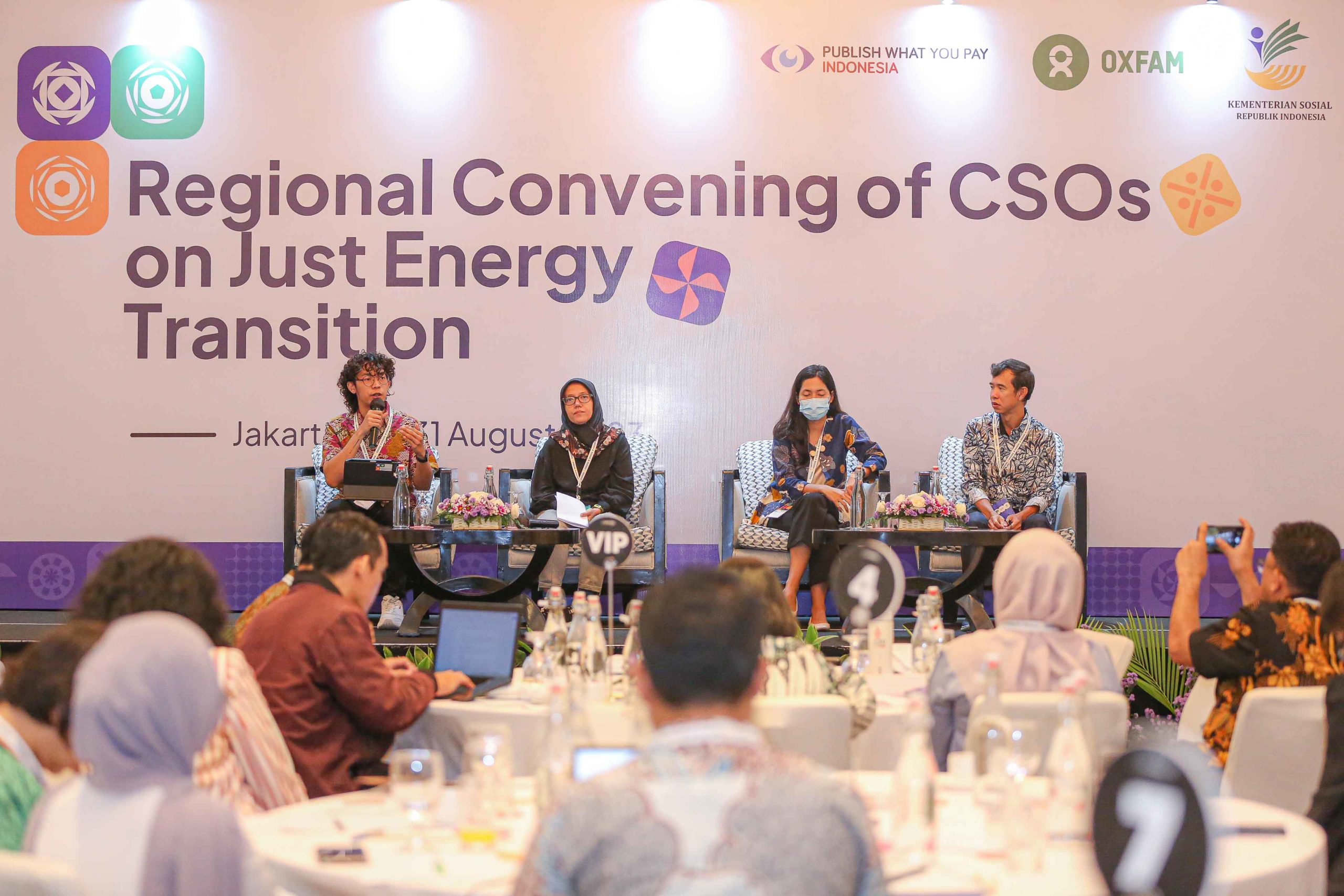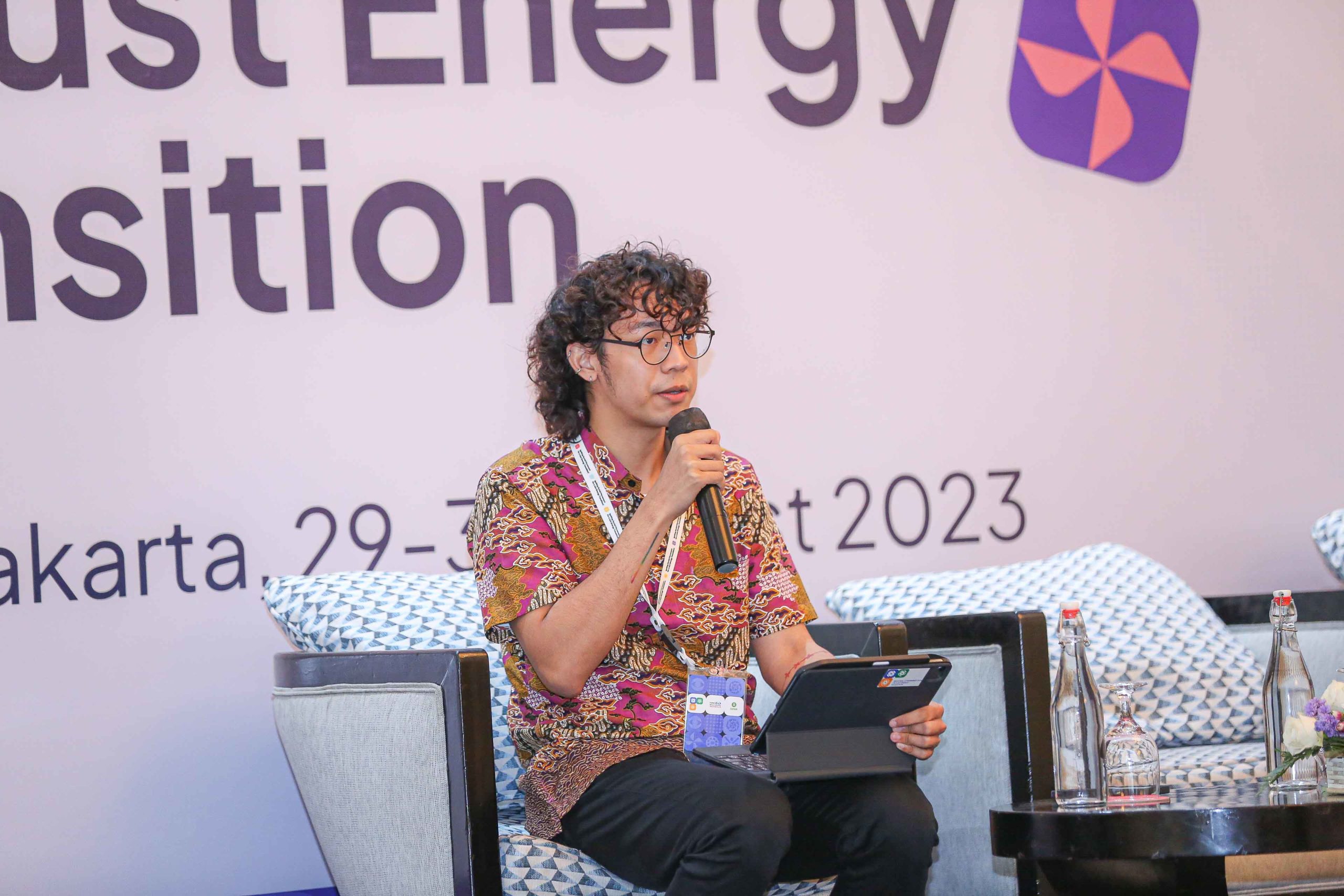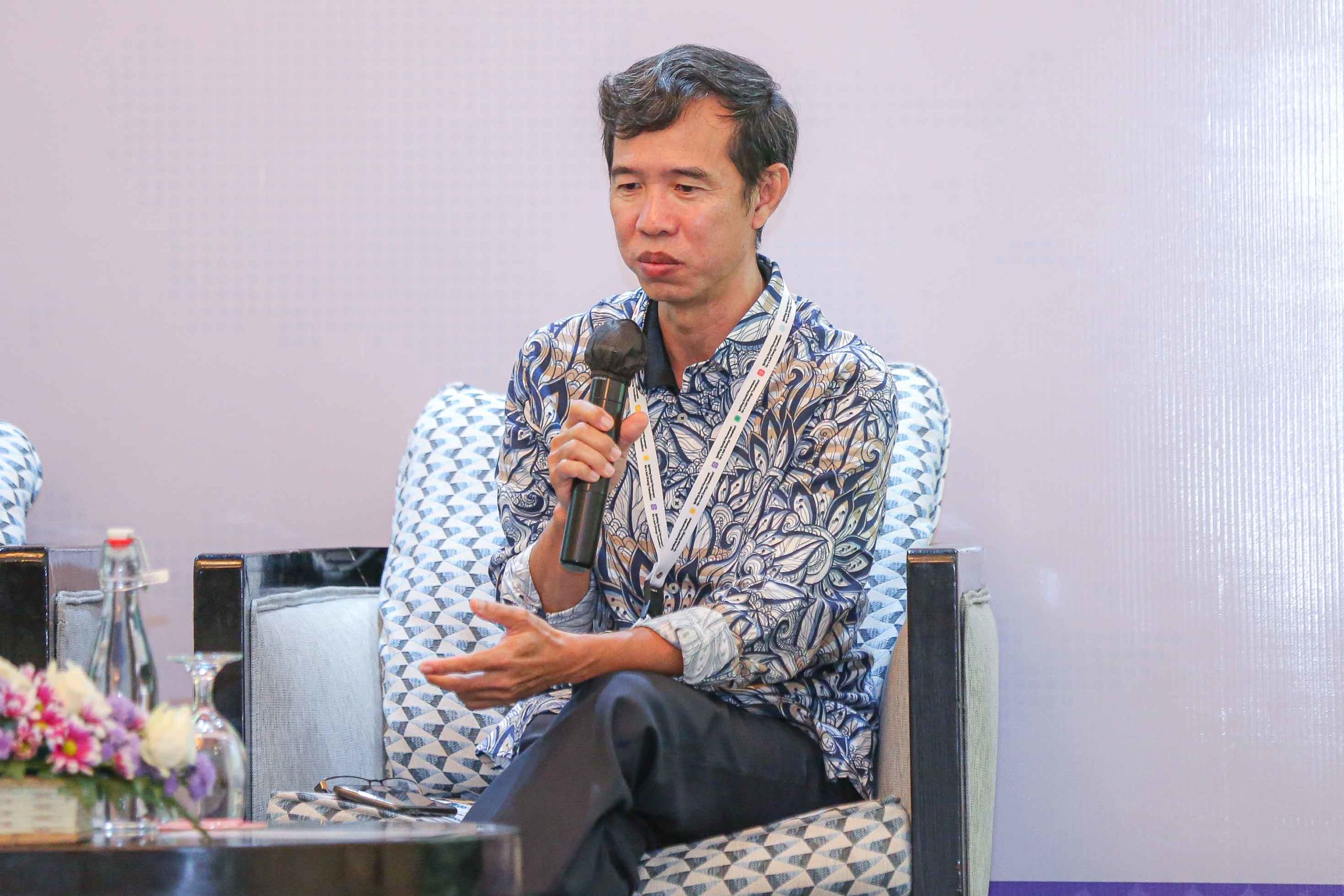Jakarta – The first day of the series of Regional Meetings of Civil Society Organizations for a Just Energy Transition closed with a discussion entitled “Mainstreaming GEDSI in a Just Energy Transition in ASEAN.” Present as speakers at the session included Mouna Wasef, Head of the Advocacy and Research Division of Publish What You Pay (PWYP) Indonesia; Syaharani, Researcher at the Indonesian Center of Environmental Law (ICEL); Khim Sok, Oxfam Natural Resources Governance Program Manager in Cambodia; and Kaneka Keo, Inclusive Project Manager, Oxfam in Cambodia. This session was moderated by Joel Chester Pagulayan, Advocacy Team for Climate Change and Energy Transition, Oxfam in the Philippines. This session discusses the general concept of a just energy transition in the ASEAN context, gender equality, and the dimensions of a just energy transition centered on the community level in ASEAN society.
Kaneka Keo said the energy transition plan will significantly reduce fossil fuels, especially coal energy, towards decarbonization and net zero. He conveyed his perspective on the challenges of a just energy transition at the community level around the Mekong Region. The challenges currently faced include energy poverty, climate vulnerability, negative impacts on indigenous communities, issues surrounding society, and human rights violations.
According to Kaneka, a just energy transition can start by overcoming energy poverty, especially modern electrification, which is an essential effort in development targets. If handled, electrification will benefit sustainable development, poverty alleviation, health, education, and community empowerment from a gender perspective. Renewable energy systems at a community level must also center on indigenous communities because they are the ones who feel the most substantial impacts of this energy transition.
Syaharani further explores the energy transition in the Indonesian context. Indonesia is one of the world’s largest coal producers and exporters and has coal that supplies more than 60 percent of its electricity needs. In 2020, the energy sector was the highest emitter, with electricity production being the largest source of emissions. The renewable energy mix in Indonesia is also still stagnant at 12 percent compared to the target of 23 percent in 2025.
Presidential Regulation Number 112 of 2022 concerning regulations for accelerating the development of electricity generation from renewable energy sources in the context of the energy transition in the electricity sector, the Minister of Energy and Mineral Resources has prepared a road map for accelerating the end of the operational period of PLTUs, outlined in a sectoral planning document determined to accelerate the energy transition in Indonesia. However, more effort is needed to ensure smooth and fair growth. Syaharani revealed several things that needed to be done, including legally binding medium and long-term targets for decarbonizing energy, including a strong commitment to stop the use of fossil fuels. A clause that mandates a just energy transition and recognizes the human rights implications thereof. Regulations that level the playing field for renewable energy in the market, including revising sectoral laws and regulations, as well as integrating the energy transition into energy planning (National Energy Policy, National Energy General Plan, Electricity Supply Business Plan, National Electricity General Plan) climate documents ( Nationally Determined Contribution, Indonesia Long-Term Strategy for Low Carbon and Climate Resilience) and environmental planning.
Syaharani also reviewed transparent and effective governance, such as access to information, access to participation, and solid institutional arrangements. In his presentation, he said it was essential to integrate Gender Equality, Disability, and Social Inclusion in a just energy transition.
Khim Sok explained the impact of a just energy transition at the ASEAN level. ASEAN member countries are classified as the countries most vulnerable to the effects of climate change, but fossil fuels still contribute 79 percent of the region’s energy mix. ASEAN member countries have committed to using renewable energy as 23 percent of energy supply and 35 percent of installed capacity by 2025 – but an investment of USD 290 billion is required.
Mouna Wasef conveyed GEDSI’s integration efforts in a just energy transition. Five indicators for integrating GEDSI in a just energy transition include participation and control in making decisions, economic benefits, access to natural resources, education and information, socio-cultural integration, and remedial and complaint mechanisms.
Mouna emphasized the steps that can be taken to integrate GEDSI into a just energy transition, such as comprehensive socialization of the energy transition using regional languages, easy-to-understand videos, and Braille. Increase the capacity of women and other vulnerable groups around energy transition projects. Gender budget marking for women’s groups at location level—proportion of energy transition financing for community-based renewable energy development. Energy transition projects use a collective ownership model—control over the choice of technologies and formats used. Obtain guaranteed subsidies for energy conversion/transition products. The energy transition process takes into account the rural-urban gap—as well as an integrated complaint-handling mechanism platform.
The series of Regional Meetings of Civil Society Organizations for a Just Energy Transition, attended by more than 70 Civil Society Organizations, was held on 29-30 August 2023 in Jakarta. This is a meeting of minds, a combination of experiences, and evidence of the commitment of civil society organizations (CSOs), governments, and policymakers to chart a course toward a sustainable and just future collaboratively, especially in the Southeast Asia region.
Author: Chitra Regina Apris
Reviewer: Aryanto Nugroho




